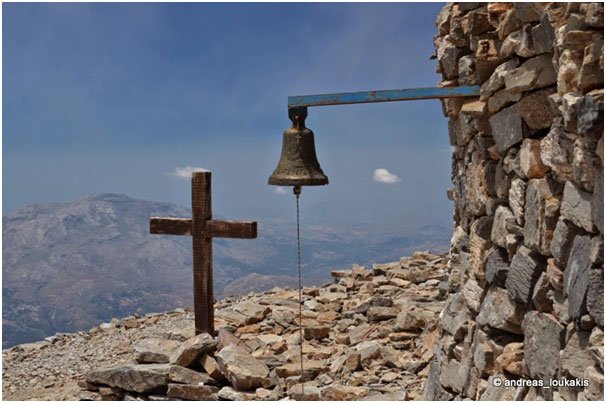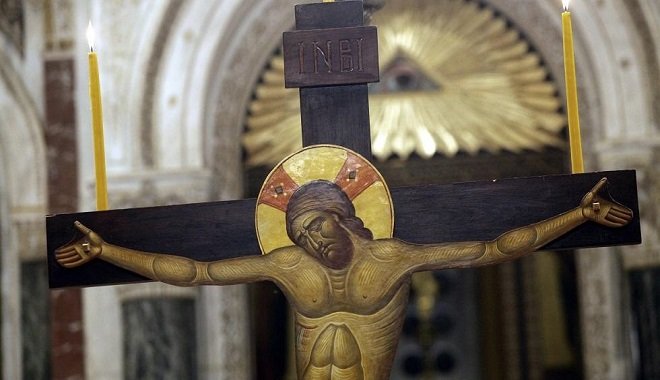3rd Sunday of Great Lent
19 March 2023The Holy Fathers wisely dedicated the 3rd Sunday of Great Lent to the honouring and veneration of the Precious Cross. We’ve already passed three weeks of fasting and struggle, and the precious Cross comes in the middle of Holy Lent to reinforce the faithful so that we can continue along the path that will lead to the Risen Lord Jesus Christ.
An instrument which, in antiquity, represented the most horrendous of deaths was transformed by Jesus Christ into ‘a weapon against the devil’. Just as, before Christ’s coming, we were cut off from God because of the ancestral sin, so, after his resurrection, our relationship with God was restored.

Our attitude is defined by the words of the Lord Jesus Christ in the Gospel reading for the day. Jesus Christ calls upon each of us to deny our self, that is to become humble and to take up our cross and follow him. This is an expression which perhaps sounds easy enough, but in the end is not achieved by everyone. Most people today, and, indeed, in any other day and age, aim to acquire at least one of three things, if not all of them: riches, glory and fame. Particularly in more recent years, few people seem to consider that death is always lurking at the door. This isn’t being morbid, but is the normal attitude of an Orthodox Christian. The hour of death and the circumstances under which it will occur are beyond our ken. The one thing that’s left for Christians is the extent to which we’re ready to meet Christ at the departure of the soul from the body. The rest is in the hands of God and we’re unable to change it. If we care only for the pampering of the body and for living a life of ease here on earth, when the hour of death arrives we’ll see that it was in vain that we cultivated earthly life instead of preparing our soul for eternity. At the moment we depart this earthly life, we may be shocked at our decisions, at the fact that we’ve preferred to gain the world (that is secular positions of power and so on) but have, in the end, lost our soul. If we come to our senses in time, all well and good, but if not we will be in a very sorry state indeed.
But perhaps the most important point in the Gospel reading is that regarding our denial of Christ. When people are prospering, it’s difficult for them to think of God. Indeed, especially if they’ve departed from the Orthodox faith, this often approaches the bounds of denying Him. This denial may not be expressed in words precisely. Denial of God is every sin, which, when there’s no regret, separates us even more from God.

It’s in the hands of each of us to realize how far we’ve distanced ourselves from God, and to repent. We shouldn’t leave our return to Him for another time because none of us know the hour of our death. Every era has its own trials which will reveal how weak the faith of Christians is. The only way to strengthen that faith and to overcome our various trials is with tireless study of scripture and the Fathers, ascetic effort, active participation in the sacramental and liturgical life of the Church, and repentance. You can’t be an Orthodox Christian and not read scripture, not pray (e.g. the komboskini, the Jesus Prayer, ‘Most Holy Mother of God save us’, compline and so on) and not participate in the sacraments of the worship of the Church.
We humans were made ‘in the image’ of God, but through our spiritual struggle we grow into ‘the likeness’. We are all God’s creations, but can be regarded as His children only if, on a daily basis, we confess Him through our actions and through our active prayer. The more people refrain from the spiritual life or experience Orthodoxy as ‘tourists’, the more their trials will increase. Not because God punishes them, but because they distance themselves from Him, thus inviting attacks from the devil.






